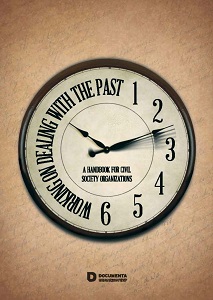Documenting Human Losses in Croatia
Documenting Human Losses in Croatia
Author(s): Slaven Rašković
Subject(s): Library and Information Science, Civil Society, Recent History (1900 till today), Studies in violence and power, Peace and Conflict Studies
Published by: Documenta - Centar za suočavanje s prošlošću
Keywords: civil society; Croatia; human losses; documentation process; Documenta;
Summary/Abstract: Since its establishment, Documenta has viewed establishing facts about war events as one of necessary steps towards the process of dealing with the past. Due to the fact that human losses are the hardest consequence of armed conflicts, we expected that state institutions would do everything in their power to list, by their name, all victims of war, regardless of their ethnic, religious, political or social background, and that the list would also include key identification information and circumstances of their death. However, even 18 years after the war in Croatia ended, there is still no unique, publicly accessible and verifiable list of Croatian citizens who were either killed or went missing during the war. Such a situation still enables ideological and political manipulation of the number of victims and, for sure, neither contributes to easing the effects of the war nor does it enable opening of the space for building trust and sustainable peace. This was exactly the reason why Documenta, at the beginning of 2009, started a research on human losses in Croatia. This research aims to pay respects to victims of war by making their names and circumstances of their death publicly known. We believe that it is an obligation of every society to raise awareness of the fact that victims of war are not just mere numbers, but people with first and last name. For this reason, Documenta was one of the first organizations to be included in an international initiative for advocating the Charter for acknowledging every casualty of armed violence, which was started in London in 2011 and which has, by now, been adopted by more than 40 humanitarian and human rights organizations from all over the world.
Book: Working on Dealing with the Past - A Handbook for Civil Society Organizations
- Page Range: 62-69
- Page Count: 8
- Publication Year: 2013
- Language: English
- Content File-PDF

